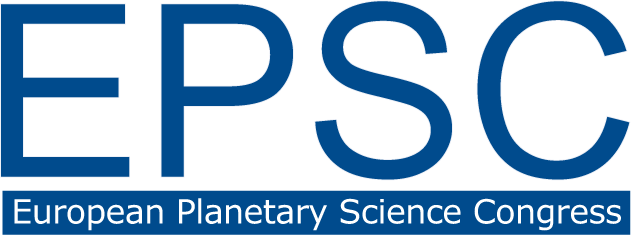Posters
EXO11
Co-organized as TP22/OPS5
Convener:
Shiblee Ratan Barua
|
Co-conveners:
Rosanna del Gaudio,
Felipe Gómez,
James O’Donoghue,
Conor Nixon
Attendance time: Thursday, 19 September 2019, 17:15–18:45 | Level 2
Chairperson: Shiblee Ratan Barua, Felipe Gómez, Rosanna del Gaudio
L2.109 |
EPSC-DPS2019-1855
L2.110 |
EPSC-DPS2019-1814
L2.113 |
EPSC-DPS2019-704
Proliferation of coacervates originating from laboratory reactions of some chemicals normally present in giant molecular clouds in chick embryo
(withdrawn)

